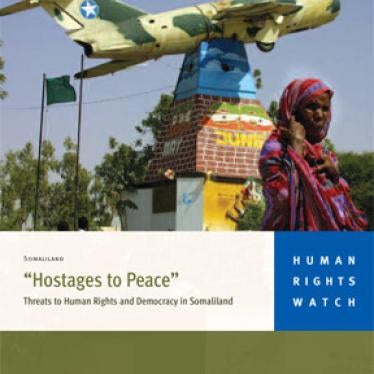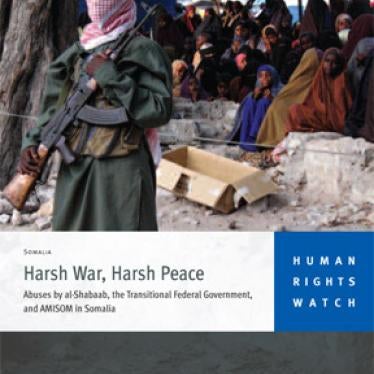Ask people what they know about Somalia and most will probably start talking about pirates, terrorists, and Black Hawk Down. Not many would think to mention democracy or free elections as well, but they should. Last month, Somaliland--an impoverished sliver of territory that has maintained de facto independence from Somalia since 1991--held elections that put the democratic pretenses of its neighbors in the Horn of Africa to shame.
The presidential election was described by independent observers as free, fair, and peaceful. Even more remarkable, a veteran opposition politician, Ahmed Silanyo, was declared the winner and the incumbent president, Dahir Riyale Kahin, handed over power to his rival. This is headline news that unfortunately hasn't made the headlines.
In terms of human rights, the rule of law, and good governance, the whole region is moving in a grim direction. Somalia, which has not had a functioning government since 1991, continues to be ravaged by indiscriminate warfare, with major regional implications illustrated by the recent bombings in Kampala. Ethiopia, once seen as a country taking tentative steps toward democracy, is settling into a dictatorship after the ruling party won farcical elections in May with 99 percent of the vote.
In Kenya, a coalition government that was cobbled together in the wake of fraud-riddled elections in 2007 is now paralyzed by corruption and political infighting. Eritrea's brutally repressive government has earned its country the nickname "North Korea of Africa," while tiny Djibouti has languished under the same leadership since1999. Only Somaliland has chosen a different path.
None of this has come easy. These elections were supposed to have taken place more than two years ago, and at various points along the way it seemed that they might not happen at all. The government has not always chosen the democratic path either. It has regularly used illegal "security committees" to imprison people without fair trials, and it has at times harassed independent journalists and government critics. Government institutions are weak, and the rule of law is often more of an aspiration than a reality. But for all that Somaliland has been a peaceful and comparatively democratic place for 19 years now, against great odds and with precious little support from the outside world.
Western governments have been focused on potential security threats emanating from Somalia for several years now. Since 2006 most of the country has either been mired in brutal fighting or firmly under the thumb of abusive Islamist militants. The outside world, including the US government, has largely united behind Somalia's moderate but ineffectual Transitional Federal Government (TFG). But in spite of all the outside support and the presence of thousands of African Union troops that are helping it in the fight, the transitional government only manages to control a corner of the capital, Mogadishu--and even that is under constant threat.
In practical terms the primary effect of outside intervention in Somalia has been to perpetuate a bloody military stalemate in the capital in which all sides have devastated the civilian population, forcing tens of thousands to flee. The US for example, actually shipped mortars to Mogadishu even though they have been used primarily to pound civilian neighborhoods. But in Somaliland--the only area of relative stability and peace inside Somalia's international borders--the US and others have looked on with interest but have not developed any kind of coherent policy to build on the territory's impressive democratic gains.
Somaliland's government has long argued that the world should recognize it as an independent country, a cause shared by all three of its major political parties. But whether or not the recent elections strengthen their case, it is well past time for Western governments claiming to be interested in restoring peace to Somalia to start finding ways to help build on Somaliland's many still fragile achievements.
The US and other governments should capitalize on the rare moment of hope and opportunity the elections represent, and both assist and pressure Somaliland's government to redress serious flaws in the territory's nascent democratic system. Helping the Somaliland government establish stronger and more impartial courts--and pressuring it to eliminate the abusive security committees--would be a good place to start. The unending tragedy in Somalia should not blind concerned governments from the real possibilities in Somaliland.
Chris Albin-Lackey is at Human Rights Watch and was a researcher on the Horn of Africa at Human Rights Watch from 2008 to this year.








